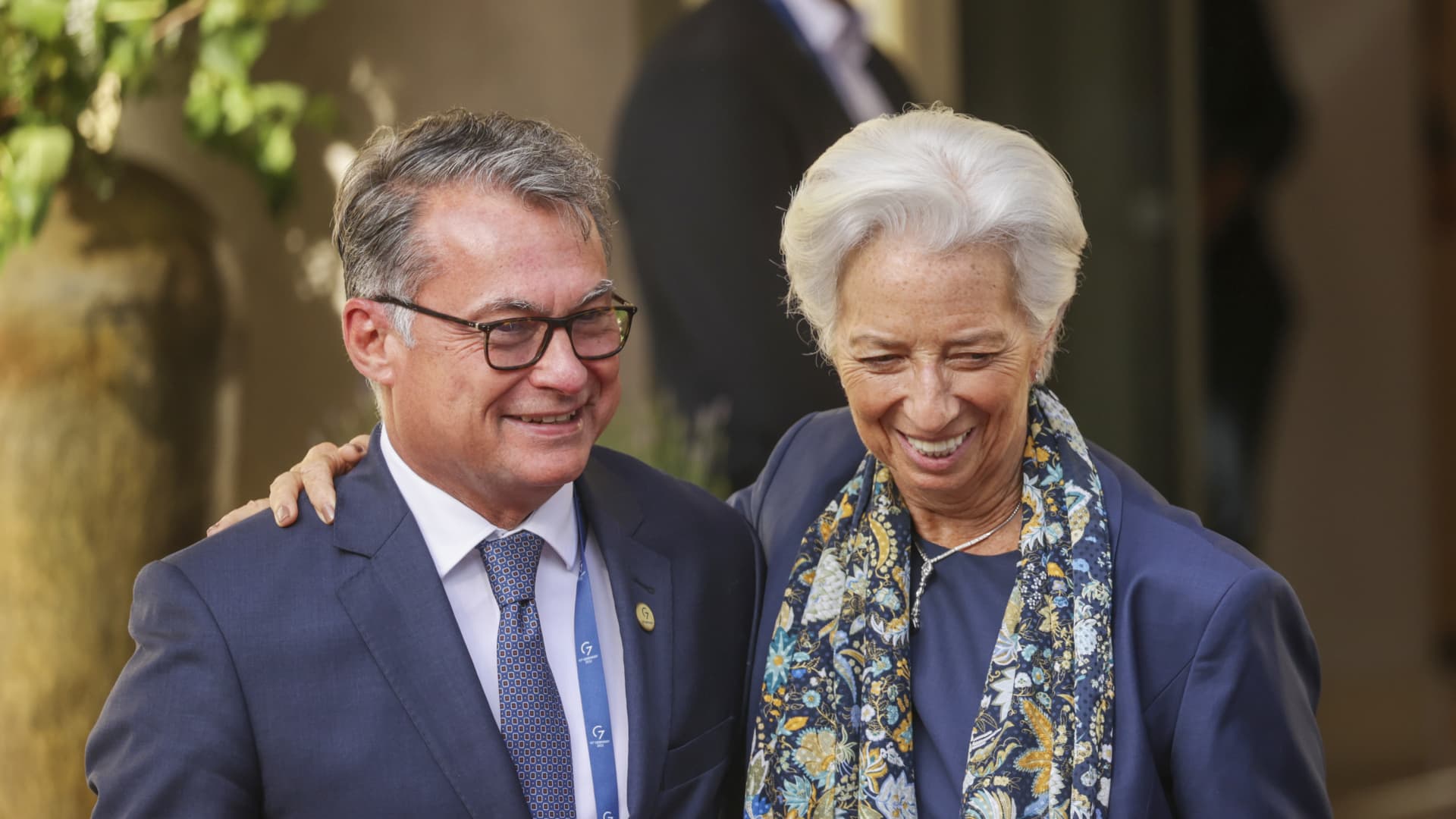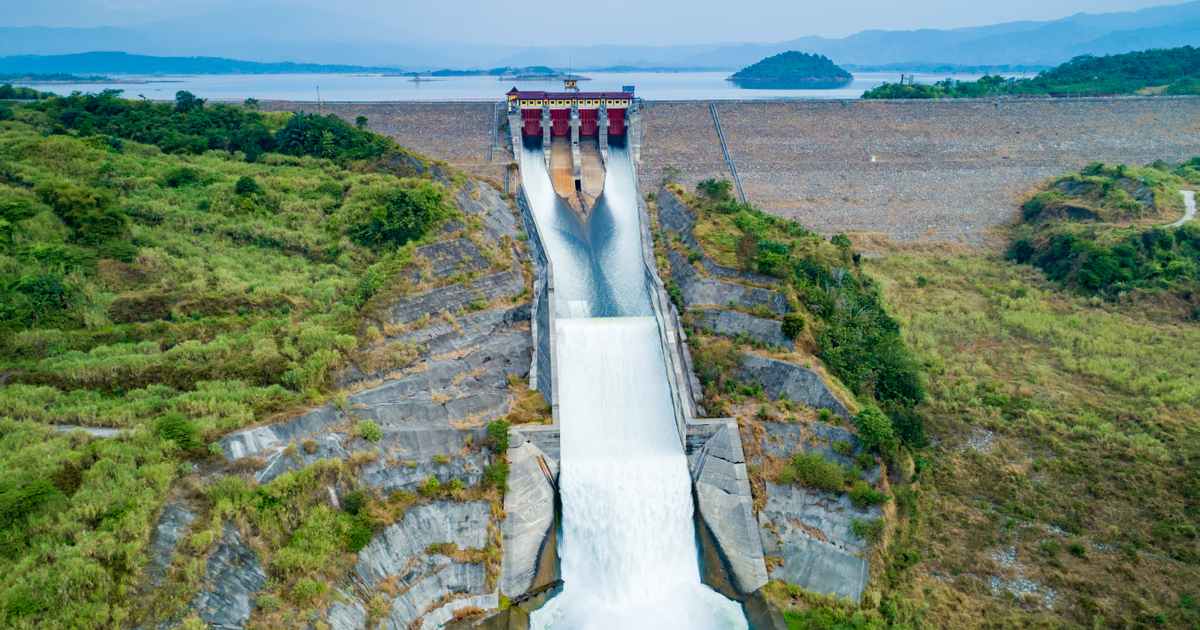Germany's fragile coalition dealt fresh blow as far right lands first state win since World War II
After Germany's far-right AfD recorded successes in state elections, the path ahead could be tricky for the national government around Chancellor Olaf Scholz.

German Chancellor Olaf Scholz (R), Finance Minister Christian Lindner (L) and Economy and Climate Action Minister Robert Habeck speak to the media.
Sean Gallup | Getty Images News | Getty Images
The ruling coalition in Berlin is likely to struggle onward until a nationwide vote next year, according to political commentators, following a historic state election win for the far-right AfD over the weekend.
The populist and anti-immigration AfD (Alternative for Germany) recorded successes in two state elections Sunday, securing far more votes than the parties currently in the national ruling coalition behind Chancellor Olaf Scholz.
Marcel Fratzscher, president of The German Institute of Economic Research, told CNBC's "Street Signs Europe" on Monday, the result means the Scholz coalition will be challenged between now and the next general election in 2025.

"It will be very hard for the national government to implement any major reforms to push ahead," he said.
Deutsche Bank economists shared a similar view in a note published Monday, noting that the results would likely put "further strains" onto the already fragile coalition. "Weak election results are likely to accelerate the switch into campaign mode for next year's federal election, reducing the scope for meaningful reforms until then," they said.
Results
Preliminary results from the eastern German states of Thuringia and Saxony show that the far-right AfD garnered over 30% of votes in both states, even emerging as the biggest party in Thuringia with 32.8%.
The results would confirm an increase in votes for the far-right AfD since the last state elections in 2019, when it won around 28% in Saxony and 23% in Thuringia. The AfD's win in Thuringia was the first time the party won a state election, and marked the first far-right win in a state election since World War II.
Despite the AfD's success, it is unlikely to become part of the ruling state coalitions in both Saxony and Thuringia as most other, it not all, parties have said that they do not want to partner with the far right.
The election outcome also comes at a time where Germany's economy — the largest in Europe — is struggling. Data released last week by the national statistics office Destatis reflected that Germany's gross domestic product fell by 0.1% in the second quarter of 2024 from the previous quarter. Figures published Monday also showed that a German manufacturing PMI fell further into contraction territory in August, coming in at 42.4, a multi-month low.
Scholz's center-left SPD (the social democrats) garnered just 7.3% of votes in Saxony and 6.1% in Thuringia, with other national government coalition partners, the Greens and the FDP (free democrats), faring even worse.
13 August 2024, Thuringia, Suhl: Björn Höcke (AfD), state parliamentary group and party leader as well as his party's top candidate, speaks at the AfD Thuringia election campaign on the market square in front of the slogan "Der Osten macht's".
Michael Reichel | Picture Alliance | Getty Images
Another anti-establishment party, the BSW (Sahra Wagenknecht Alliance), which is a left-nationalist party that was only set up earlier in 2024 also recorded successes on Sunday — securing 11.8% of the vote in Saxony and 15.8% in Thuringia.
"Voters vented their anger at the continuously infighting Berlin coalition, amid conflicts over migration and major challenges associated with the Russian invasion of Ukraine," Carsten Nickel, deputy Director of Research at Teneo, said in a note on Monday.
Election outlook
Even after the next national election, policymaking could still be difficult for the federal government, Fratzscher added. Germany's political climate is marked by "a strong atmosphere" of conflict and frustration, he explained, including growing anti-immigration sentiment.
It is "very hard to see" how governments can be formed, including at the federal level, Fratzscher added.
"This means there is really a political stalemate. and that's a big concern for an economy that needs reform, that needs deregulation, that needs a massive push on investment, that needs to engage more in Europe," he added.
The state election results come ahead of a national election in Germany in 2025, which will likely happen in September. This plan is unlikely to change, with experts saying there is barely any chance of this new state election result leading to a snap nationwide vote.

"We believe the results are not enough of a shock to end the government coalition in Berlin prematurely," Deutsche Bank said.
Snap elections are also rare in Germany as there are constitutional hurdles that make calling them tricky.
Attention is set to turn to another two state elections that are scheduled ahead of the national vote, including one in the eastern state of Brandenburg later this month. Scholz's SPD is currently part of the ruling coalition in the state and will be hoping to hold onto vote share there.
Looking ahead to the national election, Scholz and the SPD will now be hoping for quieter times ahead before focusing on their campaign strategy, Teneo's Nickel told CNBC's "Squawk Box Europe" on Monday.
"The hope here for the social democrats, for Olaf Scholz, will be that things will calm down next year," he said.
"The idea is, I think, to wait it out for a year and then really focus on that story, saying look over the last three years, I mean, Germany has been in massive geopolitical flux right, and we're not at the end of it yet. Are you willing to basically exchange the government in that situation or would you give us the benefit of the doubt?"

 ValVades
ValVades 
































